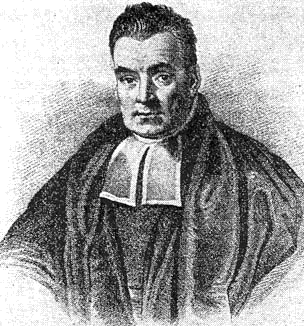I was looking for some historical information about Thomas Bayes (1702-1761) this week in order to write a little text and found his biography in Wikipedia. In the end of the article, there is a link to the notorious paper that is credit for starting it all, I mean, the celebrated Bayesian interpretation of probability theory. The name of the paper is An essay towards solving a Problem in the Doctrine of Chances and it was published postumously in 1763 being presented to the Royal Society of London by a friend named Richard Price. Indeed, it seems that Bayes published only three papers: two in life and one in death.
Doctrine of Chances was the name given to Probability Theory at those days. I started to read the paper and discovered that it was written with a strange point of view about probabilities. As Kolmogorov didn´t put everything in rigorous ground in that time, the paper talks about games, expectations of receiving and losing amounts of (probably) money and is full of complicated definitions and propositions that could be written and deduced in simpler ways today. There is even a comment in the beggining by Price saying that "His solution he has applied to a very important purpose, and thereby shewn that those a remuch mistaken who have insinuated that the Doctrine of Chances in mathematics is of trivial consequence, and cannot have a place in any serious enquiry." Can anyone think something like this about Probability Theory today?
The problem that Bayes solves in the paper is: "Given the number of times on which an unknown event has happened and failed: Required the chance that the probability of its happening in a single trial lies somewhere between any two degrees of probability that can be named." Note that Bayes ask how to estimate a probability after just one try of a random event. Here is the cern of the Bayesian interpretation, where estimates can be made without reference to frequencies, but the modern shape of Bayes Inference started to appear only with Laplace, which used the ideas in Bayes' paper to estimate the mass of Saturn.
Being written in such a different mathematical language, the paper is difficult to read, but it's a funny exercise and sheds light on the foundations of Bayesian theory. Bayes inference is an interesting matter by itself and I intend (did I promise it already?) to te a bigger post about that. It's beign prepared and I hope to finish it someday...
On my desk:
- The physics of forgetting: Landauer's erasure principle and information theory, M.B. Plenio, V. Vitelli (quant-ph/0103108)
- Deriving Landauer's erasure principle from statistical mechanics, Kurt Jacobs (quant-ph/0512105)
- Relational Quantum Mechanics, Carlo Rovelli (quant-ph/9609002)


3 comments:
Oi Roberto,
Coloquei um link para o seu blog no meu www.comciencias.blogspot.com
Uma duvida. Como se coloca um contador de visitas aqui no blogspot? Osame
Oi Roberto, vc poderia colocar um link para o meu blog? Agradeco!
Dear Admin
I'm very happy for visiting your blog. I have a blog on mathematics which publish it in 2 language. I want to visit my blog and send your comment about it.
I have a question. May you link us?
Post a Comment